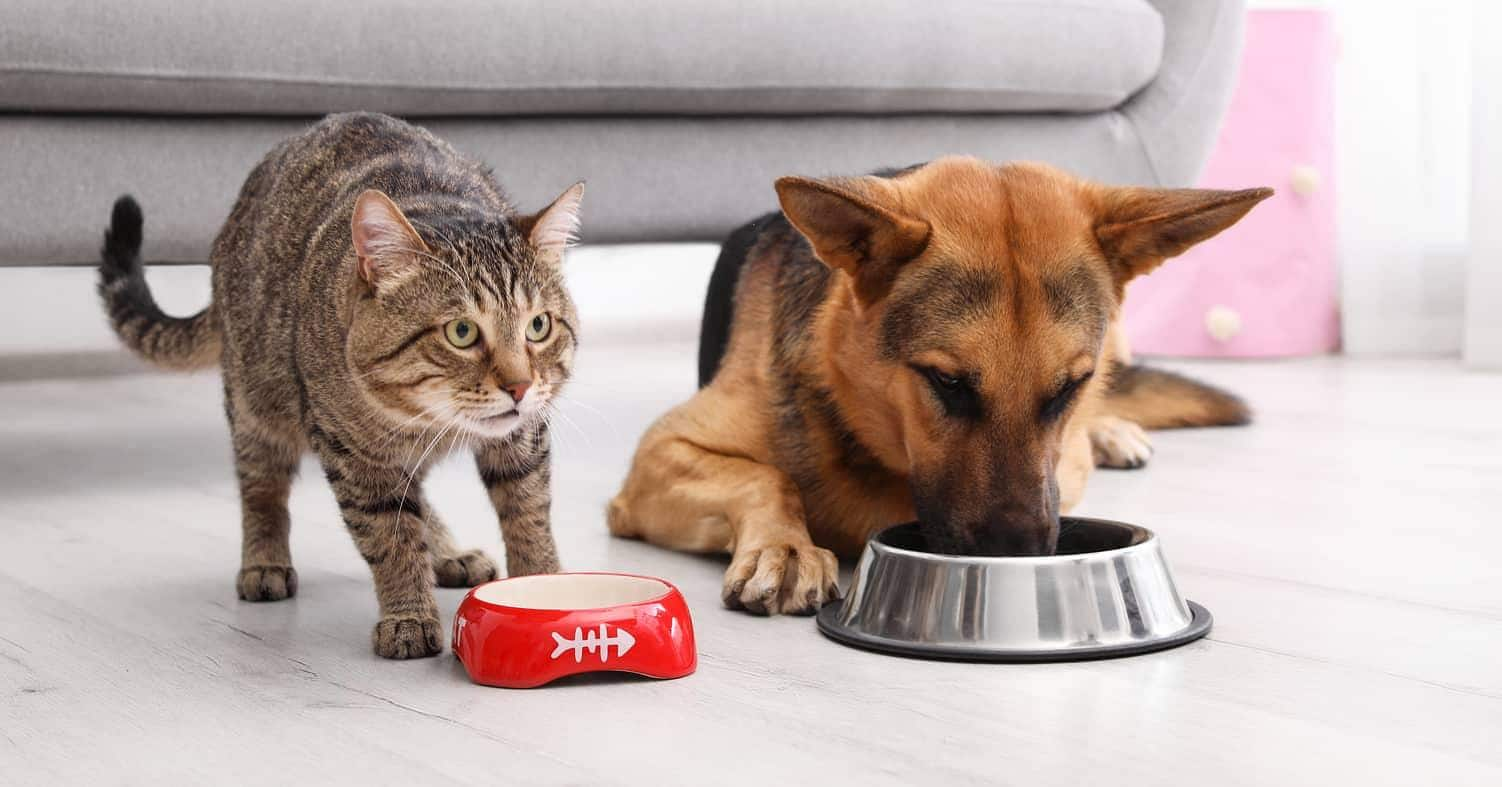
-
Find the right food for your petTake this quiz to see which food may be the best for your furry friend.Find the right food for your petTake this quiz to see which food may be the best for your furry friend.Featured products
 Perfect Weight Small & Mini Adult Dog Food
Perfect Weight Small & Mini Adult Dog FoodHill's Science Plan Adult Small & Mini Dog Food with Turkey is a complete premium pet food for adult small dogs from 1 year old that are prone to weight gain or slightly overweight. This deliciously smooth mousse is formulated to deliver the appropriate amount of energy to support weight maintenance in adult dogs.
Shop Now Perfect Digestion Small & Mini Adult Dog Food
Perfect Digestion Small & Mini Adult Dog FoodHill's Science Plan Perfect Digestion Small & Mini Adult Dog Food with Turkey is a complete premium pet food for small breed adult dogs aged 1–6 years. This deliciously smooth mousse is precisely balanced to deliver the appropriate amount of energy and to support digestive health in adult, small breed dogs.
Shop Now Hypoallergenic Small & Mini Adult Dog Food
Hypoallergenic Small & Mini Adult Dog FoodHILL'S SCIENCE PLAN Hypoallergenic Small&Mini Adult dog food with Salmon is complete pet food for adult small dogs 1–6 years old. It's formulated for dogs with delicate skin and stomach, with limited high quality novel protein sources & no grain.
Shop NowFeatured products Sterilised Mature Adult Cat Food
Sterilised Mature Adult Cat FoodHill's Science Plan Sterilised Cat Mature Adult Cat Food with Chicken is specially formulated with ActivBiome+ Multi-Benefit Technology. It is a precisely balanced nutrition tailored to meet the needs of mature adult sterilised cats, ages 7+, and to promote graceful ageing.
Shop Now Urinary Health Adult Cat Food with Chicken
Urinary Health Adult Cat Food with ChickenHill's Science Plan Urinary Health Adult Cat Food with Chicken supports the health of the whole urinary system. Suitable for sterilised cats.
Shop Now Oral Care Adult Cat Food
Oral Care Adult Cat FoodHill's Science Plan Oral Care Adult Cat Food with Chicken contains clinically proven kibble technology to reduce plaque & tartar build up.
Shop Now -
Dog
- Dog Tips & Articles
-
Health Category
- Weight
- Food & Environmental Sensitivities
- Urinary
- Digestive
- Joint
- Kidney
-
Life Stage
- Puppy Nutrition
- Adult Nutrition
- Senior Nutrition
Cat- Cat Tips & Articles
-
Health Category
- Weight
- Skin & Food Sensitivities
- Urinary
- Digestive
- Kidney
-
Life Stage
- Kitten Nutrition
- Adult Nutrition
Featured articles Virtual Vet Visits: What You Need to Know
Virtual Vet Visits: What You Need to KnowLearn the ins and outs of a televet appointment before you talk to a vet online.
Read More Tips For Mixing Wet And Dry Pet Food
Tips For Mixing Wet And Dry Pet FoodDiscover tips for mixing wet and dry pet food to ensure balanced nutrition and variety for your pet. For comprehensive feeding advice, visit Hill's Pet UK.
Read More Develop your gut instinct | Hill's Pet
Develop your gut instinct | Hill's PetDigestive disorders can affect any part of the digestive system, from the stomach, small intestine and through to the large intestine.
Read More -


It’s not uncommon for us to count the calories in our own food, but have you ever looked at the calories in dog food? What about the calories in cat food? Understanding what and how much your pet eats is important for making sure they're getting the nutrients they need to stay healthy.

How Many Calories Does a Dog or Cat Need?
Calorie needs depend on lots of different factors, so they can vary considerably between pets. Basic resting calorie needs, or the minimum calories your pet needs to support their basic bodily functions, are calculated per kilogram of body weight. Other factors, such as activity levels, age, pregnancy, and whether or not your pet is overweight, are then factored in to calculate the total overall calorie needs. For example, if your dog is extremely active and goes on runs with you every day, they will need more calories in their food to make up for the energy they exert while exercising.
However, it's important to not make assumptions about the calories your pet should eat in a day. To know what range is right for your pet, speak with your veterinarian. They'll be able to take your pet's size, body and lifestyle into consideration before recommending how many calories your dog or cat should be consuming on a daily basis.
Counting the Calories in Your Pet's Food
Are you concerned about the amount of calories in dog food or the calories in cat food, but don't know how to figure out how much to feed your pet? A good starting point is to follow the manufacturer’s feeding guidelines on the label, adjusting for your pet as necessary. If the caloric content is not included on the label, you should be able to find this information on the manufacturer’s website, or by contacting them directly.
When you’re looking at the manufacturer’s feeding guidelines, remember to always feed for the weight your pet should be. Ask your vet if your pet is the ideal weight, if not, you may need to feed a slightly different amount or switch to a different food. Your vet can also help if you’re not sure how to interpret the calorie information for your pet’s food, or you’re not sure how much to feed your pet to meet their nutritional needs.
It's important to work with your vet when altering your pet's food, or deciding on a new food plan for a pet you've just brought into your home. Depending on whether you're feeding your pet wet or dry food, or a mixture of both, your vet should be able to tell you just how much of each should be consumed at each feeding.



Tasty Tips
Young pets may need several visits in their first year for vaccinations. Adult pets generally benefit from annual check-ups, while senior or special-needs pets might require more frequent visits.
What Else Affects Calorie Intake?
If you've met with your vet, developed a food plan based on your pet's individual needs, and started to read pet food labels religiously, outside factors can still influence the amount of calories your pet ingests on a daily basis. Let's be honest: we all share treats with our pets, and even the healthiest treats add calories to your pet's diet. Ideally, calories from treats should not account for more than 10 percent of your pet's daily caloric intake.
Be honest with your vet when you're making a dietary plan. Let them know how many treats you usually give your pet throughout the day. In addition, share what type of treats you're giving your dog or cat. Packaged tidbits will have the serving size listed on the label, but table scraps will take a little more research to figure out how many calories you're sharing. Your vet may recommend reducing the number of treats, including table scraps, in order to keep your dog or cat at a healthy weight. Where possible, take some kibble out of the daily ration and use that as treats between meals.
We all know that fatty foods make us pile on the pounds and the same is true for pets. This is because fat packs in 2.5 times more calories per gram than either carbohydrates or proteins. However, it’s important to remember that all these food groups, along with vitamins and minerals, are essential for a healthy, balanced and complete diet. The proportions may vary for different pets and their lifestyles, but good quality pet foods will ensure that the balance is perfect for your pet.
When There Are Too Many (or Too Few) Calories
Similar to humans, calories are the method for measuring the amount of energy your pet is consuming through food. Through natural biological processes, your dog and cat break down the food that they eat and turn it into energy. Your pet then burns that energy throughout the day, not just through play and exercise, but for maintaining all the processes that keep them alive.
It’s important to understand how calorie consumption is affecting your pet's overall health. If your dog or cat is putting on weight, they may be taking in too many calories, or not getting enough exercise. The reverse is true for pets that are too thin.
If you've followed your vet's diet and exercise advice but your pet is not at an optimal weight, it may be time for another vet examination to determine if there is an underlying health condition. A number of conditions can affect a dog or cat's metabolism, causing them to burn too many or too few calories. At this point, your vet may recommend a therapeutic pet food formulated to work with your pet's specific health needs.
The food choices you make for your pets are what keep them healthy and happy. Following your veterinarian's recommendations for quantity and frequency will help keep your pets active for all the days of their lives.


Erin Ollila believes in the power of words and how a message can inform—and even transform—its intended audience. Her writing can be found all over the internet and in print, and includes interviews, ghostwriting, blog posts, and creative nonfiction. Erin is a geek for SEO and all things social media. She graduated from Fairfield University with an M.F.A. in Creative Writing. Reach out to her on Twitter @ReinventingErin or learn more about her at http://erinollila.com.
Related products

Hill's Science Plan Adult Small & Mini Dog Food with Turkey is a complete premium pet food for adult small dogs from 1 year old that are prone to weight gain or slightly overweight. This deliciously smooth mousse is formulated to deliver the appropriate amount of energy to support weight maintenance in adult dogs.

Hill's Science Plan Sensitive Stomach & Skin Adult Wet Dog Food with Chicken is a complete premium dog food for adult dogs from 1 year. This savoury tinned loaf is enriched with ingredients that support digestive health & skin care.

Hill's Science Plan Perfect Digestion Small & Mini Adult Dog Food with Turkey is a complete premium pet food for small breed adult dogs aged 1–6 years. This deliciously smooth mousse is precisely balanced to deliver the appropriate amount of energy and to support digestive health in adult, small breed dogs.

HILL'S SCIENCE PLAN Hypoallergenic Small&Mini Adult dog food with Salmon is complete pet food for adult small dogs 1–6 years old. It's formulated for dogs with delicate skin and stomach, with limited high quality novel protein sources & no grain.
Related articles

Monitoring your pet’s body condition score (BCS) can help you help your pet maintain proper growth and weight for a long, healthy life.

Discover tips for mixing wet and dry pet food to ensure balanced nutrition and variety for your pet. For comprehensive feeding advice, visit Hill's Pet UK.

Digestive disorders can affect any part of the digestive system, from the stomach, small intestine and through to the large intestine.

Learn the ins and outs of a televet appointment before you talk to a vet online.

Put your pet on a diet without them knowing
Our low calorie formula helps you control your pet's weight. It's packed with high-quality protein for building lean muscles, and made with purposeful ingredients for a flavourful, nutritious meal. Clinically proven antioxidants, Vitamin C+E, help promote a healthy immune system.
Put your pet on a diet without them knowing
Our low calorie formula helps you control your pet's weight. It's packed with high-quality protein for building lean muscles, and made with purposeful ingredients for a flavourful, nutritious meal. Clinically proven antioxidants, Vitamin C+E, help promote a healthy immune system.

